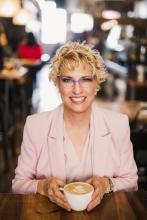Planning for Success in the Pandemic Version of the Holidays
Planning for Success in the Pandemic Version of the Holidays

2020 has been a difficult year for everyone, especially those who are prone to anxiety and depression. The social isolation, uncertainty about employment, income, health and the health of Covid vulnerable people you love has posed a unique challenge for us all. It is completely understandable for you to have some apprehension about the upcoming holidays.
So, instead of talking about the typical mental health messages to use self-care and recalibrate expectations, I recommend that you take a different approach. You need to assume that things will be difficult and that there will be some casualties, kind of like a battle between the Holidays as we used to know them and the Pandemic version of the holidays. You need to learn from the approach the Navy Seals and successful survivors of difficult, painful and dangerous events employ. In short, you need to be prepared to deal with difficult things, knowing that it will be difficult, and make the measure of success your ability to get through with your mental health and physical health intact.
Research on people who are able to survive and even thrive under great difficulties and duress shows several characteristics that you can emulate. These skills can be used by anyone, including you. People who are resilient and who thrive during great challenges do the following:
1. View the current pandemic as a challenge and treat it as though it is an ordinary part of your life instead of repetitive traumas and disappointments. People who recover well from difficult situations view the stress view stress as a challenge to be mastered and an opportunity for something to be gained. They make it their job to manage difficult things instead of believing that there must be some better version of their life.
- For example, instead of viewing 2020 as the year that Covid ruined, you can view it as the year that you learned how much you needed face to face contact with people, the year you got to talk more with friends and family, the year you got to focus on the really important parts of the holiday instead of all the glitter or the year you got to slow down.
2. Reframe stress as being something inevitable, that occurs every day and is desirable. Plants that do not have the stress of air movement and wind will flop over and never be upright. Humans who lack challenges whither in spirit and body. Stress is a sign of being alive and being human. Over the past 30 years, people have come to accidentally believe that stress is something bad that should be avoided. Stress, as scientists understand, is just something that requires adaptation, whether it feels positive or negative. Stress is everywhere, all the time. Research on attitudes about stress shows us that when people believe that stress is an opportunity for personal growth achievement, then they end up thriving physically and mentally. The opposite is true. When you accidentally believe that stress is bad and to be avoided you decrease both mental and physical health.
- For example, start telling yourself that the 2020 Holidays are a time to clarify what really matters about the holidays and to figure out how to honor those important values of family, worship, community or charity. These do not require holiday parties, lots of gifts or large gatherings to fulfill. You will need to get creative to express the holiday spirit pandemic-style.
3. Set your goal on living your life with moral integrity and assume that it will take effort. Researchers on resilience show that people who measure success by attaining integrity with their own moral values for being a good person, maintain self-worth during difficult times. Conversely, people who focus upon getting approval and recognition for their efforts end up fragile and often disappointed because they cannot keep generating a constant stream of external successes. Self-esteem is how you feel about yourself based upon your successes. It is shallow and brittle because it is impossible to constantly generate the next big success, whether it is someone being perfectly delighted with the gifts you gave, the party you threw or how amazing you looked at the holiday party. This means that you need to focus upon the ways that you can be a good person, be compassionate and give to others if you want to feel good. It means that you will need to decide what kind of human being you want to be during the holidays and then work to achieve it.
- For example, if you want to be less negative, less complaining and more optimistic, make a pact with your friends and yourself to limit the negative news, to avoid complaining and to find the funny and the uplifting every day. Subscribe to the positive news, read comedies and watch funny holiday movies. Live to be a person of great moral integrity instead of the person everyone notices, appreciates or thanks. Start helping out more with co-workers if you have a job. Volunteer to help others in small ways and take private pleasure in being a better human being.
4. Analyze what went well and why at the end of the day instead of focusing upon what was disappointing or upsetting. Research shows that this will improve your ability to meet important goals and to improve your character and ability to cope. Depression and anxiety are insidious in their power to make you focus solely upon negative things and failures. This is mental health poison. The military, top performing businesses and elite athletes use this strategy for debriefing a situation because it increases the odds of winning the battle, winning the race or solving the problem. Be willing to journal about what is going well and what you thought and did that led to your success.
- For example, take some time to think about and write down, or enter onto your computer, what things you have done that have helped you have a good time or enjoy your life during the past year. Examine what you did, what you thought, how you handled the disappointments or challenges that came your way and what made your life meaningful. Focus upon what made you feel joy. Joy is the feeling you get when you feel like you are doing something meaningful with purpose and taking delight in the experience. Think about how you could apply what you learned to planning for the holidays.
5. Focus upon service to others. Research shows that when you do something out of compassion for the sake of others without expectation of recognition or reward, you reap huge mental health and physical health benefits. There is a multitude of needy people and animals around the world that need your help. The Pandemic has made things worse for most people and they need your compassion and help.
- Try mailing messages of compassion and hope to your neighbors, even the ones you barely know.
- Make small gifts for neighbors and co-workers, shut-ins and the elderly and deliver them personally to express your goodwill. Share the books you have enjoyed or bake bread for others.
- Charitable organizations still need volunteers to do outreach, deliver goods and host soup kitchens. If you feel comfortable helping out while masked, then step up to help out where others cannot.
- Fast for a meal every week and save the money you might have spent on that meal and give to organizations that feed the hungry.
- Find the people who are being overlooked and who need your gratitude, your attention and your compassionate service.












